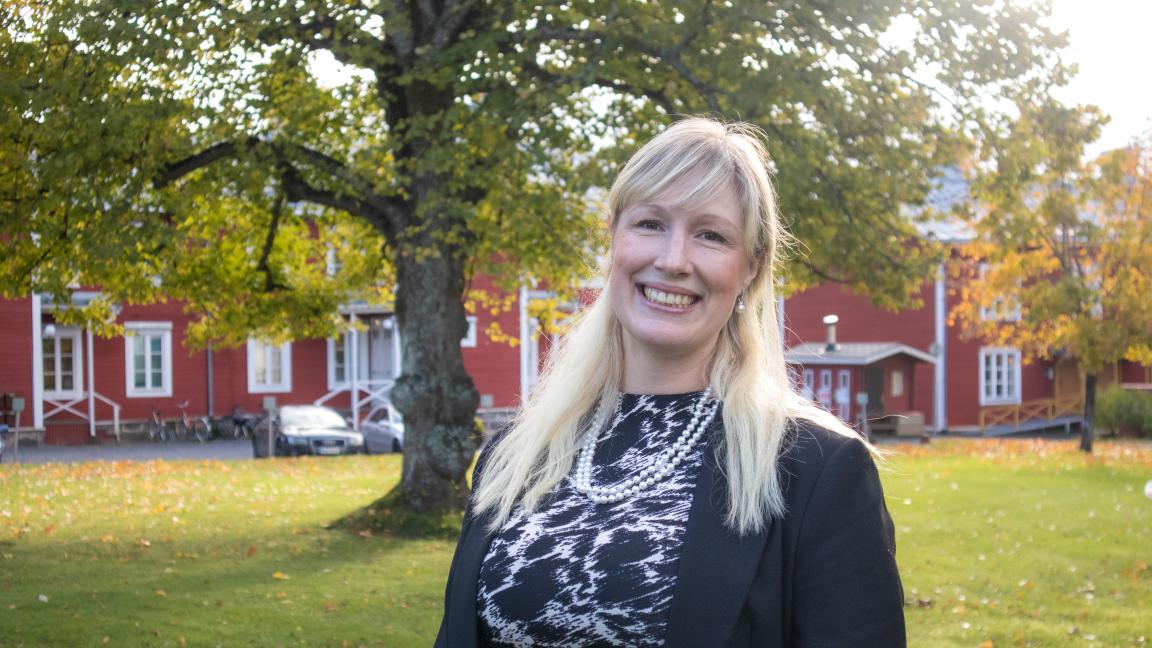How to prevent the downsides of remote working? – Better work-life balance requires more individual support from employers
– Remote work is a paradox for work-life balance: there is more time to be at home, but also more time to work. Some use the time saved by remote working to achieve a good work-life balance, while others stretch in the opposite direction by extending their working days and reducing their breaks, says Heini Pensar, who will publicly defend her thesis at the University of Vaasa on 1 November.
Her doctoral dissertation shows that employees vary in their ability to use the opportunities offered by remote work to support their well-being at work. This variation depends partly on the employee's own ability to draw boundaries between work and personal time, but also on the increasing intensity of work within the organisation.
– Employees can prevent work-related stress through their own behaviour, but they have no control over harmful organisational behaviours. Remote working has increased the workload, for example, by multiplying virtual meetings and expanding work-related interactions beyond regular working hours.
Work-life balance is an individual experience – family can be a safe haven from work spill-over into leisure
The dissertation shows that balance is a highly individual experience. Remote workers who were parents perceived the increased presence of family as a positive thing. In addition, family responsibilities helped to maintain the boundary between work and leisure. At the same time, being a parent created a need for greater flexibility during the working day.
For those in a different life situation to parents, the spill-over of work into leisure time was emphasised. They needed support to safeguard their boundaries.
Those living alone had an increased need for emotional support from their manager, while those living with a spouse could ruminate over work issues at home.
In remote working, work and personal life are closely intertwined, so the life situation of the remote worker plays a key role in shaping what type of support is needed to promote balance.
– The findings suggest that organisations should have the courage to support employees individually to better match their needs in fostering work-life balance, says Pensar.
Support from managers is an important asset
Managers should understand the holistic situation of employees, paying attention to their life circumstances and priorities. For example, work tasks should be adapted to the individual's overall load – both from work and from home, the study says.
However, Pensar argues that adapted support should not propose reducing working hours in a way that imposes financial consequences on the employee. Instead, the focus should be on enhancing flexibility and adjusting the workload and targets, for example.
– The support from the manager is an important asset both through their personal example and by creating a low threshold for emotional support. Trust is a key factor in remote working. Mistrust by the manager can hinder balance, while trust can empower the employee to make the most of the flexibility and freedom of remote work.
According to Pensar, access to personalised, tailored support should not depend on whether the manager is interested in the matter or not.
– Organisations should ensure that everyone has access to personalised and tailored support. It should not depend solely on the personal preferences and opinions of the manager.
Remote working should not be restricted – enhances well-being at work and improves the employee experience
Heini Pensar recommends that organisations continue to allow remote working. It grants employees more autonomy and strengthens the positive employee experience.
– Although offices have been reopened since the Covid-19 pandemic, remote working is here to stay. Employers should be careful about restricting remote working. My research shows that remote work increases well-being at work. It also improves people's experience of their employer: employees feel that they are trusted and respected. Yet, we must also understand and mitigate the energy-consuming aspects of remote working and design working practices that build well-being in the long-term.
The findings of Pensar's research also apply to hybrid work.
– As remote work is part of hybrid work, it shares the same characteristics. Work has become more flexible and autonomous, and intensive too.
Pensar used two large data sets in her dissertation. One was a longitudinal survey of Finnish remote workers (776) and the other was interview data of 89 remote workers from six large organisations. The first survey was conducted in 2020 at the beginning of the transition to remote working and the second 8 months later as part of the LEADIS research project.
Dissertation
Pensar, Heini (2023) Re-Thinking Work-Life Balance in the Context of Remote Work: The Importance of Personal Re-sources in Nurturing Individual Agency. Acta Wasaensia 516. Doctoral dissertation. Vaasan yliopisto / University of Vaasa.
Public defence
M.Sc. Heini Pensar's doctoral dissertation "Re-Thinking Work-Life Balance in the Context of Remote Work: The Importance of Personal Re-sources in Nurturing Individual Agency" will be examined on Wednesday 1 November 2023 at noon in the auditorium Nissi of the University of Vaasa.
The public defence can also be followed remotely (Zoom, password 087458).
Professor Julia Richardson (Curtin University) will act as an opponent and Professor Liisa Mäkelä as a custos.
Further information
Heini Pensar, University of Vaasa, tel +358 29 449 8540, heini.pensar@uwasa.fi
Heini Pensar was born in Oulu, Finland. She graduated from Vaasan lyseon lukio Upper Secondary School and completed her Master's degree in Business Administration at Lund University in 2006. In her previous career, Heidi Pensar has worked in the IT and consulting industry in executive and managerial positions. She currently works as a university lecturer in management and is responsible for the Master's programme in Business Development at the University of Vaasa in Kokkola.

